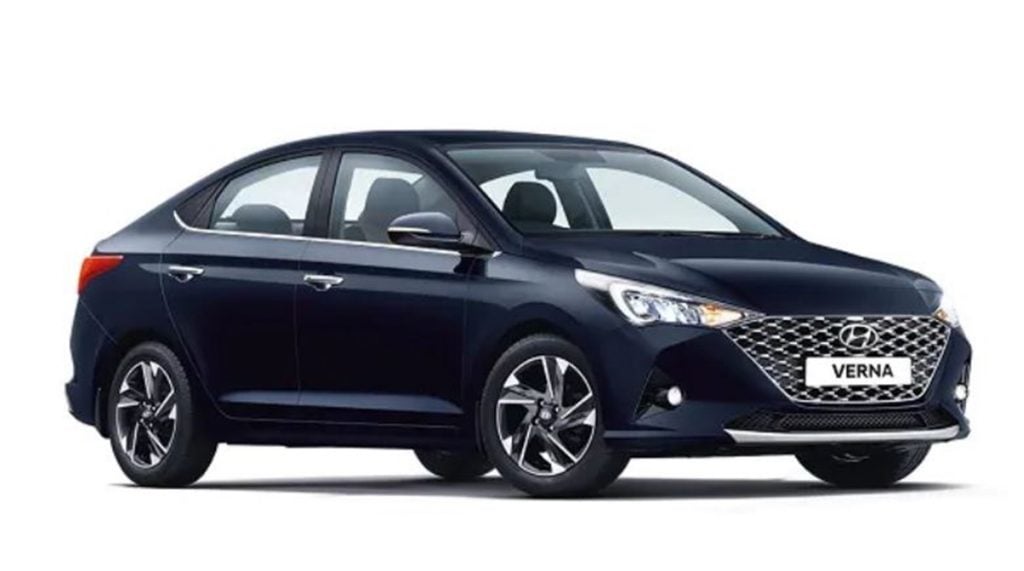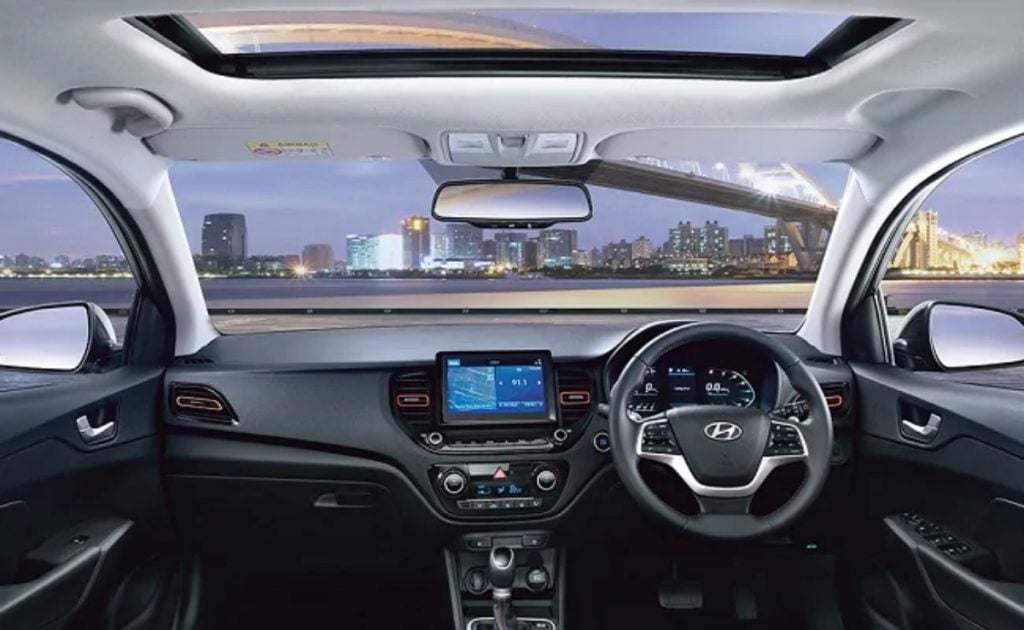From connected car technology, digital instrument cluster to turbo-petrol engine with DCT gearbox and a diesel engine, the Hyundai Verna facelift has more features than all rivals.
Hyundai has launched the 2020 Verna facelift in India for a starting price of Rs 9.31 lakh for the base petrol variant and it goes up to Rs 15.10 lakh for the top-end diesel automatic variant. Although sedans are not so much in the trend anymore, the Verna facelift still fits into a competitive segment where it rivals the likes of the Maruti Suzuki Ciaz, the Honda City, Volkswagen Vento and the Skoda Rapid as well. Typical to Hyundai, the 2020 Verna facelift is absolutely loaded to the brim with features.

Features and gadgets have become the most differentiating factors for new cars these days. Hyundai has always had a legacy of edging ahead of its rivals with some really novel features and its no different for the new Verna either. So here are five features that the 2020 Hyundai Verna facelift has over its rivals
Digital Instrument Cluster
One of the most novel features on the new Verna has to be new digital instrument cluster. The same unit is also shared with the next-gen i20, although the unit on the new Creta is slightly different. Hyundai is the first manufacturer to bring fully-digital instrument cluster to mass market cars. The cluster can be customized with different themes and will get a large MID in between for the range, tripmeter, odometer and service indicator.
BlueLink Connected Cat Technology
Again, Hyundai is one of the few manufacturers to offer connected car technology in mass market cars other than Kia, MG and Tata. But neither of these brands have a sedan in this segment which leaves the Verna to be the only car in this segment with connected car technology. Hyundai’s Blue Link connectivity suite features 45 features, including voice commands for in-car functions, remote engine and air-con operation (automatics only). The Blue Link system also allows for owners to access certain in-car functions via their smart watches.

Turbo-Petrol Engine with DCT gearbox
Features do not always have to imply only gadgets but they can also refer to mechanical features and the Verna has quite an advantage here. The Verna is again the only sedan in the segment to be offered with a 1.0L turbo-petrol engine with 120bhp and 172Nm of peak torque. The engine comes solely mated to a 7-speed DCT gearbox which is another exclusive feature in the segment. This turbo-petrol engine with a DCT gearbox will definitely appeal to the sporty enthusiasts and Hyundai has a huge advantage over its rivals in this regard. The upcoming Honda City is also offered with a turbo-petrol engine internationally but that will not likely make it to India.
Also Read : Here’s Your First Look at the 7-Seater Version of the Hyundai Creta!
Diesel Engine
Maruti Suzuki, Volkswagen and Skoda, all have announced about discontinuing their diesel engines in India. Even Honda has not updated the current City with a BS6 diesel engine. Although Honda will be bringing back a BS6 diesel engine in the City, that will be with the next-gen model when its launched towards the end of the year. Until then, the Verna facelift is the only sedan in the segment to be offered with a BS6 diesel engine. The 1.5L diesel unit produces 115hp and 250Nm of peak twisting force. The unit can be had with 6-speed manual and torque converter automatic gearbox options.
Also Read : Tata Nexon Crashes Into Toyota Fortuner – What Happens Will Shock You
Ventilated Seats
Just like the pre-facelift Verna was the only car in the segment to come with ventilated seats, the new Verna facelift continues to edge ahead with the novel feature. No other sedan in this segment is offered with ventilated seats. Ventilated seats are a very underrated feature but they are particularly very useful, particularly for Indian climatic conditions with high humidity. Its just a matter of minutes before you are cooled down on your seats and all that sweat is no more. The next-gen Honda City will also be offered with ventilated seats but until then, the Hyundai Verna remains the only car.


